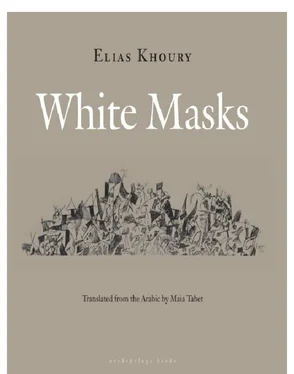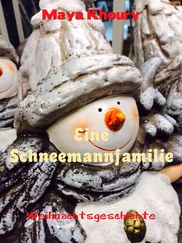What was Madrid like? Madrid was full of medical words we didn’t understand the meaning of and which our hunch-backed minder made heroic efforts to translate. Madrid was the shafts of light that streamed through my healthy eye; it was the voices of nurses and doctors, the long corridors, the faces with bandaged eyes — we were all eye patients; and the doctor telling the hunched-backed minder that they would operate tomorrow… Tomorrow, he said, they would fit me with a new eye. . an eye that wouldn’t cry, because it was a glass eye, and glass doesn’t cry. After the operation, it felt like I had a mountain inside my eye socket! I wanted to rip it out, it felt so leaden and heavy, it was stupid and immobile! Like having another person inside my eye who could see me but whom I couldn’t see. All I wanted was to rip it out. But I got used to it. It stayed put and now I don’t even feel it, it’s as if it weren’t there.
I never saw the Yemeni or Nabeel again. The hunch-backed minder said they’d been sent to a hospital in Barcelona, because their cases were difficult, and I would be returning to Beirut.
Beirut. . Beirut seemed an eternity away. I’d spent an entire month amidst the whispers of nurses, the smell of anesthetics and medicines, with one glass eye and one healthy eye, which wept and stung and filled up with fog. . Beirut was so far away, it seemed another lifetime…
An entire month had gone by, in which I’d completely forgotten Beirut, and the sound of the shells booming across the city; during which I’d forgotten even the color of my clothes. Here I was, alone in Spain one day and back in Beirut the next! I was going back the following day!
I’d said I’d be back. I’d told Sameer and Aatef, “I’ll be back.” Sameer said I would be a retired fighter.
“No,” I told him, “not retired! I will come back and hold the sky between my fingers!”
Just the way we said we would when we filled the streets with our noisy demonstrations, when we chanted that we would hoe the earth and plough it anew and be the seeds of a new beginning.
And here it was: Beirut, a jumble of buildings, the sun glinting off its cement high-rises and its blue sea. The very same sea that filled with sailors searching the deep. . As beautiful as the women, whose shimmering bodies lay on the sand that stretched all the way from Beirut and back, like the midriff of the world.
I took off my dark glasses, the city glistened white. I was sure they’d be waiting for me. No, I wouldn’t go back to Cana, I’m no Jesus Christ, and the yearning ache in my belly for Beirut had been coursing through me, like wine through my veins.
And so there I was, back. Descending the steps from the plane I can see that no one is there waiting for me; inside the airport terminal, people suddenly begin scurrying around and jostling each other as shells begin landing in the vicinity. A steward groans and predicts the airport will close. I go to the party office. . no one there either. I’m told they’ve left for the mountains, far away. Marwan says they’re all up there, where everything is covered in snow. “Then we’ll go skiing down the slopes!” I said.
Boy, and what a steep descent it’s been!
I’m the only one left here now. My old buddies have all gone. Sameer is in France, finishing his studies; Aatef went back to his old job at the Social Security Department; and I’m left with this new bunch of recruits who don’t even know the meaning of the word war. They just strut around toting their guns, talking about war. They don’t know what it means to die, how terrible it is. They talk about it as if it were something beautiful. But death is terrible. When I tell them, they don’t believe me. I don’t go with them on their patrols. I stay here, no, I don’t go. . I’d rather just stay here and wait.
Samar’s advice was that I should go back to university. I told her I wouldn’t. Samar was a student at AUB, who also worked at the film institute. That’s where we first met in a big room covered in a pall of cigarette smoke. I was there because someone who knew about it told me they were making a film about the war and wanted it to include a fighter’s testimonial. The director — whose name I forget, but he spoke like such a know-it-all — wanted a fighter to stand up in front of the camera and recount what he had experienced while the camera panned from place to place.
During the meeting, the director introduced me as a war casualty who was also an intellectual and therefore someone able to speak articulately on the subject of war. He said he’d already prepared the text of what I’d need to say in front of the camera. He gave me the paper and I started to read it out loud.
“My name is Mohammad as-Sayyed. I’m a combatant with the Joint Forces of the Palestinian Revolution and the Lebanese National Movement. We are fighting to preserve the independence and unity of an Arab Lebanon, for the liberation of Palestine, and against the forces of imperialism, Zionism, Fascism, and reaction! Pause. Behold the crimes of the Fascists! Pause. As for the war, let me tell you that we are peace-loving people, and we make war for the sake of peace. Pause. The forces of Fascism are committing untold atrocities and we are defending the lives of innocent women and children. Pause. Many of my friends have died. I held them in my arms as they breathed their last with the chant of freedom still on their lips. Pause. I was wounded, I lost my eye. Do you know my eye? Pause.”
I asked the director about the word “pause.” He told me that every time it occurred, the camera would cut to documentary footage of Tall al-Zaatar, the shelling of West Beirut and other battle scenes. I told him I thought it would be a terrific film. Everyone in the room, all those people smoking, agreed.
Then the director stood up.
“Listen, Brother Fahd,” he said, “you have to put a bit more feeling into it, as if what you were saying was coming straight from the heart. Relax in front of the camera — don’t be so stiff, you can move around a little, you know, act, if you see what I mean. Put some emotion into your voice, let your body go. You get me?”
I told him I understood. I picked up the paper again and tried moving as I read the first sentence. Then he started again.
“No, no, no! Look at me!” And he snatched the text from me and began to read, skipping the word “Pause.”
“My name is Mohammad as-Sayyed, I’m a combatant with the Joint Forces of the Palestinian Revolution and the Lebanese National Movement. We are fighting to preserve the independence and unity of an Arab Lebanon, for the liberation of Palestine, and against the forces of imperialism, Zionism, Fascism, and reaction. Behold the crimes of the Fascists! As for the war, let me tell you that we are peace-loving people, and we make war for the sake of peace. The forces of Fascism are committing untold atrocities and we are defending the lives of women and children. Many of my friends have died. I held them in my arms as they breathed their last with the chant of freedom still on their lips. I was wounded, I lost my eye. Do you know my eye?”
His entire body swayed and his voice shook with emotion. “Now do you understand? You have to do a little acting.”
I felt completely overwhelmed and incapable. I told him I couldn’t do it.
“I can’t act,” I said.
“Sure you can. What do you do for a living?”
“I’m a freedom fighter.”
“I know, I know. I meant before that. What did you do?”
“Nothing,” I said.
“OK, but try and do a little acting.” And he handed me the text again.
“I don’t know how to, I already told you. It’s difficult.”
“Try,” he repeated.
I took the sheet of paper and I tried again, as he sat across from me, his mouth agape and his eyes following my every move.
Читать дальше












